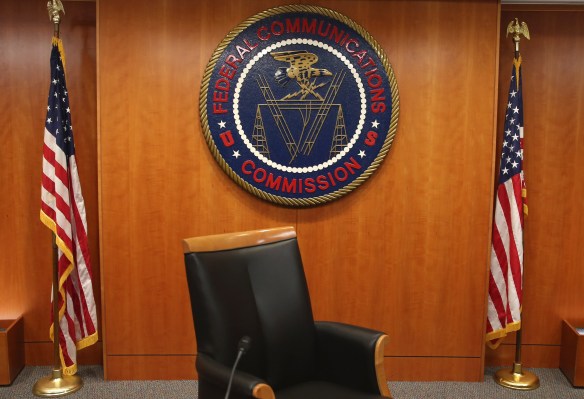The FCC was deeply embarrassed last year when it was found that its rosy broadband deployment report was off by millions, owing to a single, extremely suspect filing that conjured 62 million customers out of thin air. The company responsible is being assessed a $163,912 fine, but the underlying problems that let it happen haven’t been fixed — as Commissioner Jessica Rosenworcel assesses it: “What a mess.”
The issue, as critics and the Commission itself have pointed out for years, is that the broadband industry reports its own numbers on what amounts to the honor system. There’s no other explanation for how BarrierFree, which no one outside of one county could know of, could — after failing to file its paperwork properly 26 times — suddenly claim to serve a quarter of the country, and that information made it all the way to a national report and public statement by the Chairman.
“This should have set off alarm bells at the FCC,” said Rosenworcel in a statement accompanying the agency’s announcement of the fine. “In fact, agency staff reached out to the company nearly a dozen times over multiple years, including after this suspect data was filed. Despite these efforts behind the scenes, on February 19, 2019, the FCC used the erroneous data filed by BarrierFree in a press release, claiming great progress in closing the nation’s digital divide. When an outside party pointed out this was based on fraudulent information, the FCC was forced to revise its claim.”
The outside party in question, Free Press, has consistently provided a valuable counterpoint to the FCC’s narrative on various efforts, from this report to long-running issues like net neutrality.
Since (and really, before) then, there have been calls to revise the way the FCC measures and reports the progress of broadband deployment across the country. Considering this is one of the agency’s primary responsibilities, it’s worth updating a process that has proven over and over to be error-ridden and inaccurate.
There are better tools in the works, but they didn’t arrive fast enough to save the credibility of the 2020 broadband deployment report. In fact, the FCC should have a formal proposal for how to improve its information gathering process by the end of the month.
Meanwhile, BarrierFree gets away with what Rosenworcel and her fellow Commissioner evaluate as little more than a slap on the wrist, even though it’s the maximum penalty allowed by law.
“That limitation means that the forfeiture proposed here cannot be, in my opinion, severe enough to adequately address the harm BarrierFree caused and deter future violations,” said Commissioner Geoffrey Starks in a statement.
“This hardly feels like the vigorous enforcement our data-gathering efforts need,” said Rosenworcel. “At a minimum, we should have admonished the carrier before us to send a clear message that failing to file essential data with the agency and filing false data both result in penalty.”
“I worry about the signals this enforcement action sends today. Giving a carrier a pass for failing to file information with the FCC 26 times is not a vigorous response to the deficiencies that plague our broadband data.”
